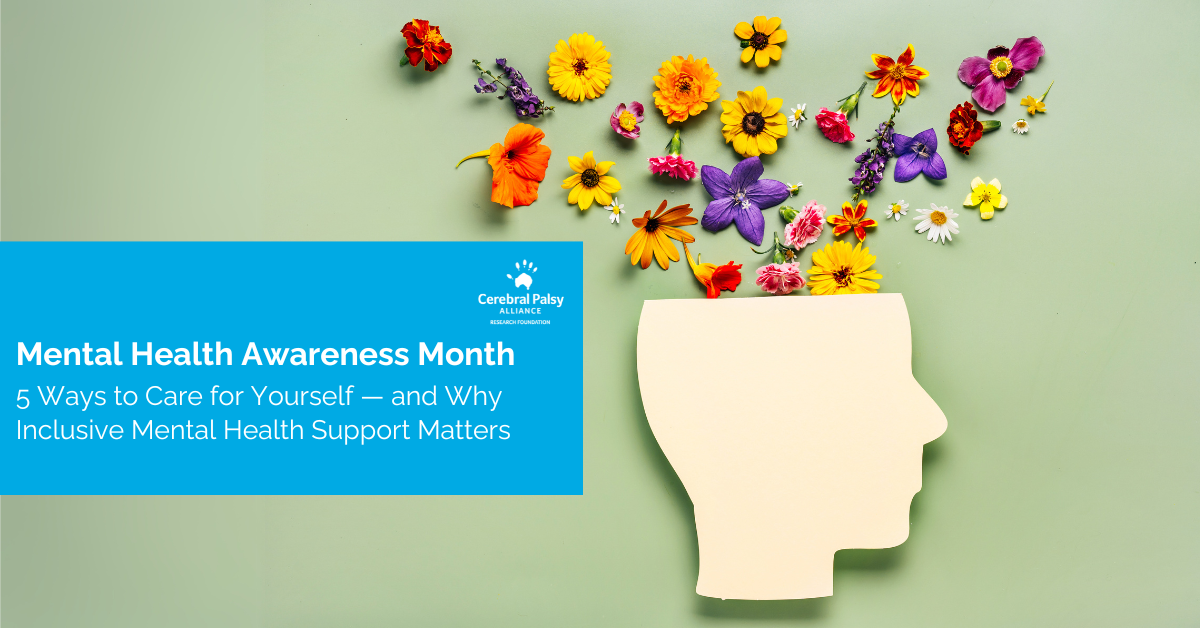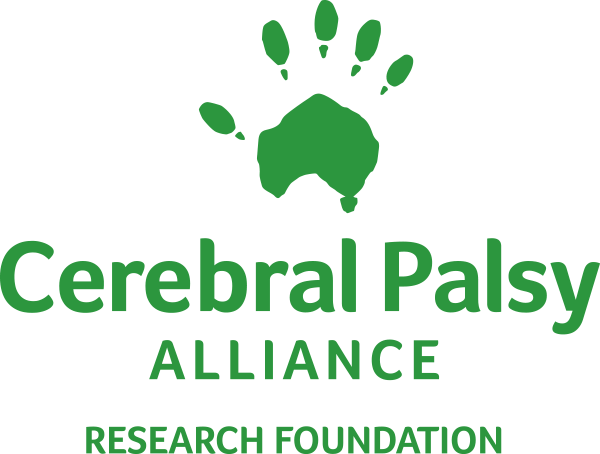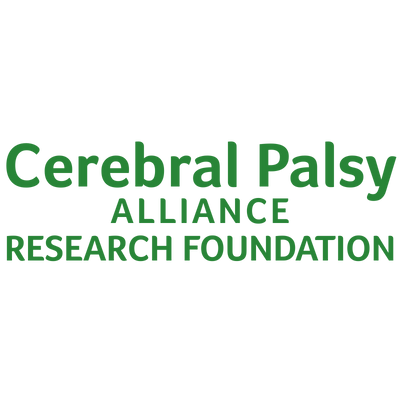
Mental Health Awareness Month: 5 Ways to Care for Yourself — and Why Inclusive Mental Health Support Matters
As we enter May, Mental Health Awareness Month reminds us of the importance of openly discussing mental health, something that affects us all but often goes unspoken. At CPARF, we know that mental health care is for everyone and that it’s especially important to acknowledge and support the mental well-being of people with disabilities.
Too often, mental health challenges in the disability community are overlooked, misdiagnosed, or left unaddressed. This month, we’re inviting you to take small steps toward self-care and advocate for the kind of inclusive, affirming mental health care everyone deserves.
Why Mental Health in the Disability Community Matters
Research shows that people with disabilities are at an increased risk for mental health challenges, including anxiety, depression, and PTSD. The CDC notes that adults with disabilities are nearly five times more likely to report significant mental distress.
Here’s why:
- Ableism and stigma can lead to internalized shame, low self-worth, and isolation.
- Chronic pain, fatigue, and medical trauma can take a toll on emotional resilience.
- Barriers to employment, education, and independence impact mental and emotional health.
- Misdiagnosis and underdiagnosis happen far too often, especially when professionals overlook symptoms because they focus solely on a person’s physical condition.
- Lack of accessibility in mental health services — from buildings to communication tools — makes it harder to find support.
The mental health challenges are further amplified by the overlapping effects of racism, economic disparity, and discrimination tied to gender identity or sexual orientation.
We believe that mental health care must be accessible, affirming, and inclusive for all people, especially for those with complex communication, mobility, or sensory needs.
Five Ways to Take Care of Yourself This Month
You don’t need a diagnosis to deserve support. Mental health care includes simple daily practices that help you reconnect with yourself. Here are five ways to start:
- Allow Yourself Time to Rest
Rest isn’t something you earn — it’s something you need for both your body and mind. Whether it’s a nap, a screen break, or simply doing nothing for a while, rest helps reset your body and mind.
- Reach Out and Check In
Connection with others plays a vital role in mental well-being. Even a brief text or video call can have a lasting impact on your mood and sense of support.
- Set Boundaries Without Guilt
Protecting your energy is an act of self-respect. Say ‘no’ when you need to. Ask for what you need. Learning to set healthy boundaries is a powerful way to protect your energy and reduce the risk of burnout.
- Move in a Way That Feels Good
Movement isn’t about performance — it’s about presence. Whether it’s stretching, adaptive sports, or dancing in your chair, any movement that brings you joy is worth celebrating.
- Celebrate Progress, Not Perfection
Healing is not linear. Every step — even the hard ones — counts. Honor your growth and give yourself credit for showing up, no matter how that looks today.
You’re Not Alone — And You Deserve Support
This month, and every month, we are reminded that mental health care should be accessible and inclusive for all — particularly for those whose mental health needs have often been overlooked.
Know that every single day: We see you. We believe in you. You are enough.
Fri 05 Dec 2025
An update on one of our most important initiatives: expanding access to life-changing assistive technology for Native Americans with disabilities.
Fri 10 Oct 2025
We’re thrilled to share an exciting milestone from CPARF’s Changemakers Program — our inaugural community-voted research study has been selected!



